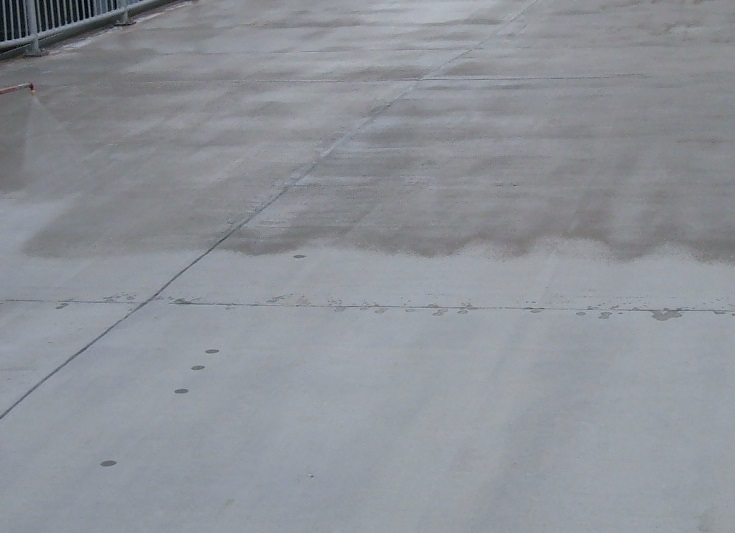Concrete is one of the most durable and widely used materials in construction, but it is still susceptible to wear and tear over time. Factors like moisture, chemicals, UV exposure, and general usage can deteriorate concrete surfaces. Concrete sealing is a crucial maintenance step that helps protect surfaces from damage, extends their lifespan, and enhances their appearance. This article explores the various types of concrete sealers, sealing methods, and the benefits of professional concrete sealing services.
Types of Concrete Sealers
Concrete sealers are categorized based on their composition and the way they interact with the surface. The primary types include:
1. Penetrating Sealers
Penetrating sealers are designed to seep into the pores of the concrete, forming a chemical barrier that repels moisture, salts, and other contaminants. These sealers are ideal for outdoor surfaces and areas exposed to harsh weather conditions. Common types of penetrating sealers include:
- Silane Sealers: Best for high-traffic areas and structures like bridges.
- Siloxane Sealers: Excellent for resisting water penetration and freeze-thaw damage.
- Silicate Sealers: Help harden and densify the concrete surface.
- Siliconate Sealers: Create a hydrophobic barrier, reducing water absorption.
2. Acrylic Sealers
Acrylic sealers form a thin, protective film on the surface of the concrete. They are available in both water-based and solvent-based formulations. Acrylic sealers enhance the appearance of concrete by providing a glossy or satin finish and are commonly used for decorative concrete, driveways, and patios. They offer moderate protection against moisture and UV damage but may require frequent reapplication.
3. Epoxy Sealers
Epoxy sealers provide a thick, durable layer of protection, making them ideal for industrial and commercial spaces. These sealers are highly resistant to chemicals, stains, and abrasion. However, they are less breathable than other sealers, which means they are not suitable for outdoor applications where moisture needs to escape.
4. Polyurethane Sealers
Polyurethane sealers offer excellent protection against abrasions, stains, and chemical exposure. They are available in both water-based and solvent-based versions. These sealers provide a glossy finish and are commonly used for garage floors, countertops, and decorative concrete surfaces.
5. Polyaspartic Sealers
Polyaspartic sealers are a newer technology that provides rapid curing, extreme durability, and UV resistance. They are often used for commercial and industrial applications where fast turnaround times are essential.
Methods of Concrete Sealing
The method used for applying concrete sealers depends on the type of sealer and the surface being treated. Here are some common methods:
1. Spraying
Spraying is a quick and efficient method for applying liquid sealers, especially for large areas. It ensures even coverage and penetration, particularly for penetrating sealers like silane or siloxane.
2. Rolling
Using a roller is a common method for applying film-forming sealers such as acrylic, epoxy, and polyurethane. Rollers help spread the sealer evenly, ensuring a smooth and consistent finish.
3. Brushing
Brushing is typically used for smaller areas or detailed work where precision is needed. It is an effective method for applying penetrating sealers into cracks and hard-to-reach areas.
4. Dipping
For certain applications, like sealing concrete blocks or precast elements, dipping the concrete into a sealer bath can ensure full coverage and deep penetration.
Benefits of Concrete Sealing
Sealing concrete surfaces offers numerous benefits, including:
- Protection Against Moisture: Prevents water damage, mold growth, and freeze-thaw cycles.
- Enhanced Durability: Reduces the risk of cracking, spalling, and surface wear.
- Stain Resistance: Guards against oil, chemicals, and other contaminants.
- Improved Appearance: Enhances color, texture, and sheen for a polished look.
- Easier Maintenance: Makes cleaning and upkeep simpler and more cost-effective.
Concrete Sealing Services
Professional concrete sealing services ensure that the right type of sealer is chosen and applied correctly for maximum protection. Hiring experts offers several advantages:
1. Surface Preparation
Proper surface preparation is essential for effective sealing. Professionals clean, repair, and prepare the surface by removing stains, debris, and existing coatings before applying a new sealer.
2. Choosing the Right Sealer
Different surfaces require different sealers. Experts assess factors like exposure, foot traffic, and aesthetic preferences to select the best product.
3. Efficient Application
With advanced equipment and expertise, professional sealing services ensure even application, proper curing, and long-lasting results.
4. Cost-Effectiveness
While DIY sealing is an option, improper application can lead to premature wear and additional costs. Professional sealing extends the lifespan of concrete surfaces, reducing the need for frequent repairs.
5. Sealing for Various Surfaces
Concrete sealing services cater to a range of surfaces, including:
- Driveways and sidewalks
- Garage and warehouse floors
- Patios and pool decks
- Commercial and industrial flooring
- Decorative stamped concrete
Conclusion
Concrete sealing is a vital step in maintaining and protecting concrete surfaces from damage. With various sealer types and application methods available, choosing the right approach ensures durability, aesthetics, and long-term performance. Professional concrete sealing services provide expertise, efficiency, and high-quality results, making them a valuable investment for both residential and commercial properties. Whether you need to seal a driveway, a warehouse floor, or decorative concrete, professional sealing services ensure a durable and long-lasting surface.

